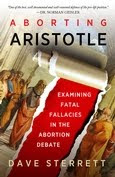This year I interviewed 25 guests for the Apologetics 315 Interviews Podcast. Transcription of the interviews continues, with a team of transcribers that have been working diligently. An index of the transcripts can be found here.
This year we featured a number of debates, which can be excellent resources.
These included:
• William Lane Craig vs. Lawrence Krauss
• Norman Geisler vs. Paul Kurtz
• William Lane Craig vs. R.I.G. Hughes
• Brett Kunkle vs. Richard Greene
• Frank Turek vs. David Silverman
• Peter S. Williams vs. Christopher Norris
• Sean McDowell vs. James Corbett
• William Lane Craig vs. Alex Rosenberg
The Most-Visited Pages of 2012 were:
- The Ultimate Apologetics MP3 Audio page
- 16 Best Apologetics Podcasts
- An Apologetics Reading Plan for Beginners
- Recommended Apologetics Book Directory
- Basic Logic Primer
- William Lane Craig vs. Alex Rosenberg
- How to Get Apologetics in Your Church
- C.S. Lewis on Reasoning to Atheism
- Christian Apologetics Blog Directory
- Faith Has Its Reasons by Ken Boa
Now that list included a lot of posts that have been around for a few years. So here is the list of Top Ten New Posts for 2013:
- William Lane Craig vs. Alex Rosenberg
- The Gospel According to Bart Ehrman
- 8 Issues That Do Not Make Or Break Christianity
- Ravi Zacharias Interview Transcript
- Free Logic Primer eBook Download
- Book Review: The God Argument by AC Grayling
- Top 10 Myths About the Resurrection
- Ravi Zacharias on the Problem of Evil
- 10 Basic Facts About the NT Canon
- Why Telling Your Story is Not the Best Way to Share the Gospel
This year Apologetics 315 reviewed 46 apologetics books. I want to say a big thank you to the review team for their hard work in reading and reviewing so many great titles. Thanks goes out to J.W. Wartick, Jay L. Wyle, Mary Lou, Latter Day Inkling, Chad Gross, Dave Jenkins, Mark Eckel, Graham Veale, Luke Nix, Holly Ordway, David Rodriguez, Chris Putnam, Brenton Cook, Eugene A. Curry, G. Kyle Essary, Chad Gibbons, Bill McCall, David Field, Justin Mooney, and Mike A. Robinson.
We continue to feature apologetics oriented quotes each Sunday, sparking some great discussions. Along with the weekly quotes, Tuesdays continue to feature terminology helpful for those delving into the realm of apologetics.
There is more and more happening in the area of apologetics. Because of this, Friday's Apologetics Bonus Links offers readings a weekly rundown of all the best links from around the web. Included each week are great Kindle book deals as well.
In case you didn't realize it, all the Bonus Links are all drip-fed through the Ap315 Twitter Feed throughout the week. It's a good thing to follow, because I feature free or discounted books available on Kindle.
If you don't prefer the chatter of Twitter, you can get daily updates on the Facebook Page. If you're not yet a follower on Facebook, please follow. This helps others find apologetics resources who might not be aware of Apologetics 315. This year the Facebook group has grown to over 8,000.
The Apologetics 315 YouTube Channel still provides another means of checking out apologist interviews. Check it out and share with others.
We continue to feature apologetics oriented quotes each Sunday, sparking some great discussions. Along with the weekly quotes, Tuesdays continue to feature terminology helpful for those delving into the realm of apologetics.
There is more and more happening in the area of apologetics. Because of this, Friday's Apologetics Bonus Links offers readings a weekly rundown of all the best links from around the web. Included each week are great Kindle book deals as well.
In case you didn't realize it, all the Bonus Links are all drip-fed through the Ap315 Twitter Feed throughout the week. It's a good thing to follow, because I feature free or discounted books available on Kindle.
If you don't prefer the chatter of Twitter, you can get daily updates on the Facebook Page. If you're not yet a follower on Facebook, please follow. This helps others find apologetics resources who might not be aware of Apologetics 315. This year the Facebook group has grown to over 8,000.
The Apologetics 315 YouTube Channel still provides another means of checking out apologist interviews. Check it out and share with others.
This year Apologetics 315 has been pleased to promote the work of Tactical Faith, an organization that gets apologetics out there in a grass-roots kind of way. They call it Grassroots apologetics. If you want to support apologetics events, this is an organization to help.
I would like to thank my blogging friends that continue to be an encouragement to me: Chad Gross of Truthbomb Apologetics and Wintery Knight from Winteryknight.com.
I continue to head up Reasonable Faith Belfast, now in its fourth year. We had some great meetings during 2013, with various Skype guests, great discussion, and a growing number of defenders of the faith.
Apologetics 315 promoted numerous apologetics conferences in the US and in the UK. I was happy to be able to attend the C.S. Lewis Memorial Service in November at Westminster Abbey and meet up with some blogging friends and see about 7 people I had interviewed all in one day.
This year Apologetics 315 has received support from its 501(c)(3) tax-deductible status. This has been a tremendous help, and thank you to those who have donated or become supporters. Find out how you can support here, as it's not too late to make end-of-year donations.
Please pray for 2014 to be another good year. God bless, and thanks for reading!
—Brian Auten


























